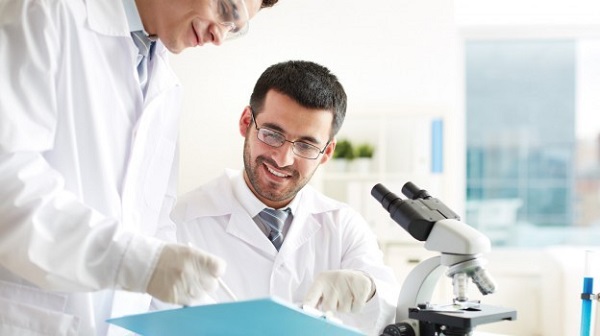
The Clinique Ambroise Paré from Thionville, IBBL (Integrated BioBank of Luxembourg) and the Cabinet de Pathologie de Thionville Antunes-Baudin have joined forces to establish a collection of tumour tissues that can benefit both patients and cancer researchers.
This project is the first Luxembourg – France cross-border tumour biobank collection (“tumorothèque”, a collection of frozen tumour tissues). It is also the first tumour biobank collection in the Moselle region where collected tissues will be used for future diagnostic as well as research purposes.
Plan to preserve the frozen tissues and make them available for research and future diagnoses...
To ensure that the tumour samples are frozen and optimally preserved in liquid nitrogen, in case the clinic needs them in the future. The frozen tissue may be needed in case of cancer recurrence, to refine a patient’s diagnosis, to guide their treatment decision or if new diagnostic & prognostic tests cannot be performed on formalin fixed tissue. If a patient has given his/her consent, the tissue that is not required for immediate diagnosis nor for the diagnostic biobank collection will be anonymously integrated into the research biobank collection (“tumorothèque de recherché”). Researchers that are studying how diseases develop and progress or aiming to find new diagnostic tools and treatments can then apply to use these samples,through the Clinique Ambroise Paré has teamed up with IBBL and the Cabinet de Pathologie Antunes-Baudin to launch the “Tumorothèque Thionville” project. The partners’ objective is to establish a diagnostic biobank collection parallel to a research biobank collection, a first in the Moselle department. Within the diagnostic biobank collection (“tumorothèque sanitaire”), IBBL will ensure that the tumour samples are frozen and optimally preserved in liquid nitrogen, in case the clinic needs them in the future. The frozen tissue may be needed in case of cancer recurrence, to refine a patient’s diagnosis, to guide their treatment decision or if new diagnostic and prognostic tests cannot be performed on formalin fixed tissue. If a patient has given his/her consent, the tissue that is not required for immediate diagnosis nor for the diagnostic biobank collection will be anonymously integrated into the research biobank collection (“tumorothèque de recherché”). Researchers that are studying how diseases develop and progress or aiming to find new diagnostic tools and treatments can then apply to use these samples.
The first samples have already been collected for the initial phase of the project Plan to preserve the frozen tissues and make them available for research and future diagnoses...
To ensure that the tumour samples are frozen and optimally preserved in liquid nitrogen, in case the clinic needs them in the future. The frozen tissue may be needed in case of cancer recurrence, to refine a patient’s diagnosis, to guide their treatment decision or if new diagnostic and prognostic tests cannot be performed on formalin fixed tissue. If a patient has given his/her consent, the tissue that is not required for immediate diagnosis nor for the diagnostic biobank collection will be anonymously integrated into the research biobank collection (“tumorothèque de recherché”). Researchers that are studying how diseases develop and progress or aiming to find new diagnostic tools and treatments can then apply to use these samples,through the Clinique Ambroise Paré has teamed up with IBBL and the Cabinet de Pathologie Antunes-Baudin to launch the “Tumorothèque Thionville” project. The partners’ objective is to establish a diagnostic biobank collection parallel to a research biobank collection, a first in the Moselle department. Within the diagnostic biobank collection (“tumorothèque sanitaire”), IBBL will ensure that the tumour samples are frozen and optimally preserved in liquid nitrogen, in case the clinic needs them in the future. The frozen tissue may be needed in case of cancer recurrence, to refine a patient’s diagnosis, to guide their treatment decision or if new diagnostic and prognostic tests cannot be performed on formalin fixed tissue. If a patient has given his/her consent, the tissue that is not required for immediate diagnosis nor for the diagnostic biobank collection will be anonymously integrated into the research biobank collection (“tumorothèque de recherché”). Researchers that are studying how diseases develop and progress or aiming to find new diagnostic tools and treatments can then apply to use these samples.
The biopsied and diagnosis stage..
When tissue is biopsied or a tumour is surgically removed as part of the therapy, a pathologist processes and analyses the tissue under a microscope to establish the precise diagnosis. The processing for diagnosis involves the collection and preservation of fragments of tissue in formalin fixative, followed by embedding in paraffin wax. Once the diagnosis is done, there may be tissue left, which has to be destroyed. However, this tissue has tremendous value to cancer researchers. Firstly, because it is relatively hard to come by. Secondly, because working with real tumour samples produces more reliable research results than working with lab-grown cancer cells. At the same time, the tissue also holds potential value for the cancer patient who donated it, in case additional diagnostic tests need to be performed down the line. This is particularly true for frozen tissue, in case future diagnostic tests cannot be performed on formalin fixed tissue.
This project is an important step for the Greater Region of Luxembourg, where governments are aiming to develop closer interregional cooperation in the medical and research fields.








